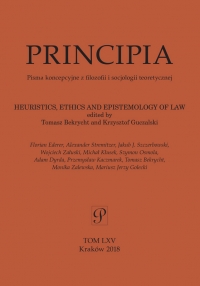Promises to Unidentified Individuals
Promises to Unidentified Individuals
Author(s): Szymon OsmolaSubject(s): Psychology, Philosophy of Law
Published by: Wydawnictwo Uniwersytetu Jagiellońskiego
Keywords: promise; identified; statistical; identifiability effect; autonomy;
Summary/Abstract: Is it possible to make a binding promise to an unidentified individual, i.e. an individual whose identity is unknown to a promisor? The answer to that question seems to be negative, regardless of the philosophical theory of promises one decides to adopt. The particular autonomy theory considers promises as one of the tools for enhancing morally valuable relationships through recognizing another party’s particular personality, which enables individuals to live a better life. The generic autonomy theory considers promises as a tool facilitating cooperation between strangers, which enables them to create some kind of shared end. The utilitarian theory considers the practice of promising as a tool of increasing social welfare. The premises of each of these theories seem to rule out the possibility of promises to unidentified individuals. Accordingly, reflections on that topic may some shed light on some problems related to the issue of the identifiability effect, widely discussed in psychological literature.
Journal: PRINCIPIA
- Issue Year: 2018
- Issue No: 65
- Page Range: 91-111
- Page Count: 21
- Language: English

